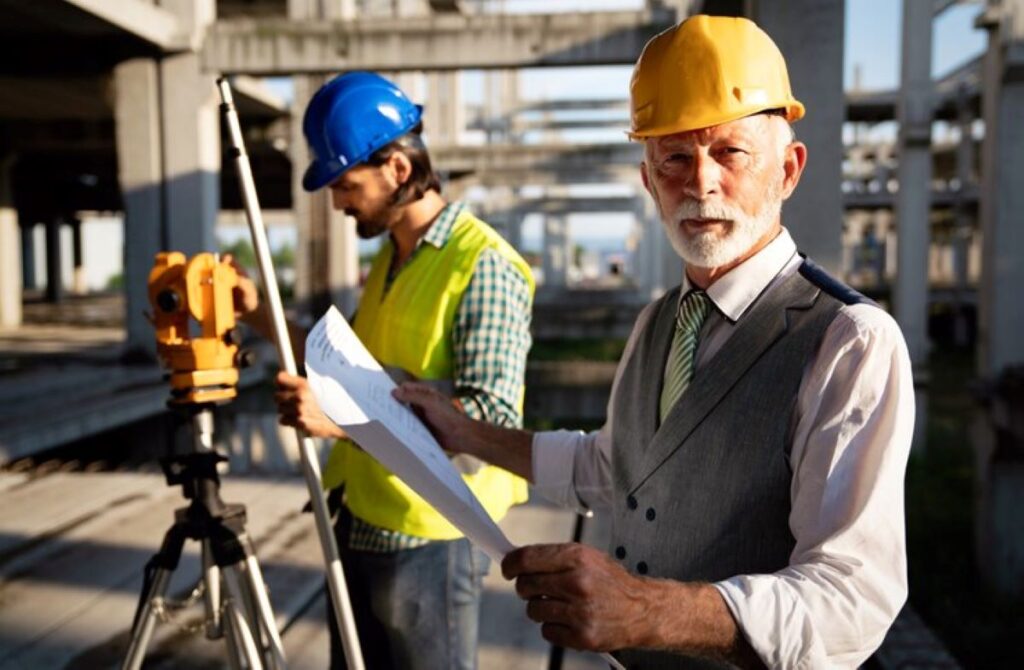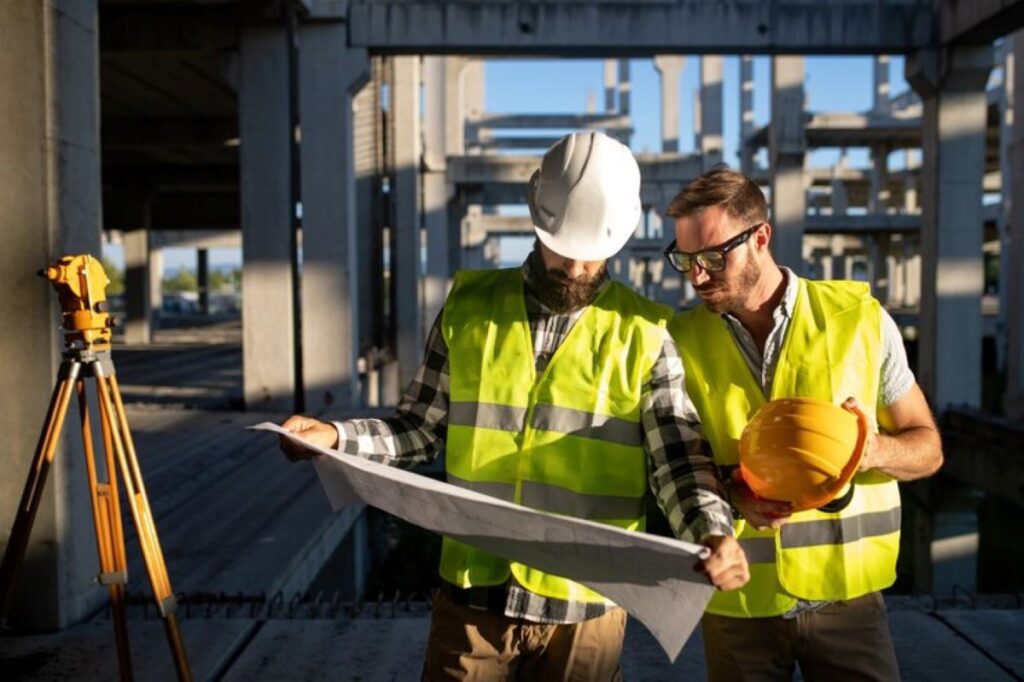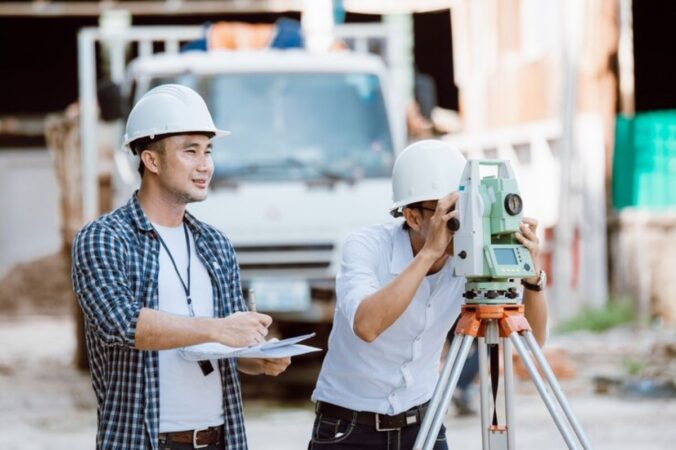In the world of construction, precision is paramount. Every project, whether it’s a towering skyscraper or a modest residential home, relies on accurate measurements and assessments. This is where construction surveyors come into play. Their expertise ensures that projects are built to specification, adhering to regulations and meeting client expectations. This article delves into the essential roles and responsibilities of construction surveyors, highlighting their significance in the construction process.
The Role of a Construction Surveyor
Construction surveyor are professionals who specialise in measuring and mapping land and structures. They play a critical role at various stages of a construction project, from the initial planning phase to the final stages of completion. Their work ensures that the project aligns with the intended design and complies with local regulations.
Key Responsibilities
The responsibilities of a construction surveyor are diverse and multifaceted. They include conducting land surveys, preparing site plans, and providing guidance on legal boundaries. Moreover, they are responsible for ensuring that the construction aligns with the design specifications and regulatory requirements.
Surveyors often use advanced technology, such as GPS and laser scanning, to gather precise data. This data is crucial for creating accurate models and plans that inform the construction process. Additionally, they collaborate with architects, engineers, and contractors to address any discrepancies that may arise during construction.
In addition to their technical skills, construction surveyors must possess strong problem-solving abilities. They frequently encounter unexpected challenges, such as changes in site conditions or alterations in project scope. Their expertise allows them to devise practical solutions that keep the project on track and within budget. This adaptability is essential, as construction projects can be dynamic environments where flexibility and quick thinking are paramount.
Importance of Accuracy
Accuracy in surveying is vital. Even minor errors in measurements can lead to significant issues, resulting in costly delays and potential safety hazards. Construction surveyors are trained to identify and rectify these errors before they escalate, ensuring that the project progresses smoothly.
Furthermore, accurate surveying helps in maintaining compliance with local laws and regulations. This not only protects the interests of the clients but also contributes to the overall safety and integrity of the construction project. The implications of precision extend beyond immediate project concerns; they also influence long-term sustainability and environmental impact. For instance, accurate site assessments can help in the preservation of natural resources and the minimisation of ecological disruption, aligning construction practices with contemporary sustainability goals.
The Surveying Process
The surveying process is systematic and involves several key stages. Each stage is designed to ensure that the data collected is reliable and useful for the construction project.
Pre-Construction Surveys
Before any construction begins, pre-construction surveys are conducted. These surveys assess the site’s topography, existing structures, and environmental conditions. The data collected during this phase is crucial for planning the construction process.
During pre-construction surveys, surveyors also identify any potential challenges that may affect the project. This includes assessing soil conditions, drainage issues, and the presence of underground utilities. By addressing these challenges early on, surveyors help mitigate risks and avoid costly delays later in the project. Furthermore, they may also evaluate the impact of the proposed construction on the surrounding environment, ensuring compliance with local regulations and sustainability practices. This holistic approach not only aids in the smooth execution of the project but also fosters community relations by addressing potential concerns from local residents.
Construction Phase Surveys
Once construction begins, surveyors continue to play a vital role. They conduct regular inspections to ensure that the work is being carried out according to the approved plans. This includes checking the alignment of structures, verifying elevations, and ensuring that all dimensions are accurate.
Additionally, construction phase surveys help in monitoring the progress of the project. By comparing the actual work with the planned specifications, surveyors can identify any discrepancies and recommend corrective actions. This ongoing oversight is essential for maintaining project timelines and budgets. Moreover, surveyors often collaborate closely with architects and engineers to address any design modifications that may arise during construction. Their expertise ensures that any changes are seamlessly integrated into the ongoing work, thereby preserving the integrity of the project and facilitating effective communication among all stakeholders involved.

Technological Advancements in Surveying
The field of surveying has evolved significantly with the advent of new technologies. Modern construction surveyors utilise a range of advanced tools and software to enhance their accuracy and efficiency.
Use of GPS and GIS
Global Positioning System (GPS) technology has revolutionised the way surveyors collect data. With GPS, surveyors can obtain precise location information quickly and efficiently. This technology is particularly beneficial for large-scale projects, where traditional methods may be time-consuming and less accurate.
Geographic Information Systems (GIS) further enhance the capabilities of surveyors by allowing them to analyse and visualise spatial data. This technology aids in decision-making and planning, enabling surveyors to present complex information in an easily understandable format. The integration of GIS with other data sources, such as satellite imagery and demographic information, allows for a comprehensive understanding of the land and its uses. This multifaceted approach not only streamlines the surveying process but also supports environmental assessments and urban planning initiatives, ensuring that developments are sustainable and in harmony with their surroundings.
3D Laser Scanning
3D laser scanning is another innovative tool that has gained popularity in the construction industry. This technology captures detailed three-dimensional images of structures and landscapes, providing surveyors with a wealth of data. The resulting models can be used for analysis, design, and even virtual reality simulations.
By employing 3D laser scanning, surveyors can improve the accuracy of their measurements and reduce the time spent on site. This not only enhances productivity but also contributes to the overall success of the construction project. Furthermore, the high-resolution data generated by laser scanning can be invaluable for historical preservation projects, allowing for the documentation of heritage sites with precision. As a result, surveyors are not only advancing modern construction practices but also playing a crucial role in safeguarding our architectural history for future generations. The ability to create detailed digital twins of existing structures enables ongoing maintenance and renovation efforts to be planned with a level of foresight that was previously unattainable.
Collaboration with Other Professionals
Construction surveyors do not work in isolation; they are part of a larger team that includes architects, engineers, contractors, and project managers. Effective collaboration is essential for the success of any construction project.
Communication and Coordination
Clear communication between surveyors and other professionals is crucial. Surveyors must convey their findings and recommendations effectively to ensure that everyone involved in the project is on the same page. This includes sharing data, discussing potential challenges, and coordinating efforts to address any issues that arise.
Moreover, surveyors often participate in project meetings, providing valuable insights that contribute to informed decision-making. Their expertise helps to ensure that the project remains on track and within budget.
Interdisciplinary Collaboration
In many cases, construction projects require input from various disciplines. For instance, environmental consultants may need to assess the impact of the construction on local ecosystems, while structural engineers focus on the integrity of the building. Surveyors play a vital role in facilitating this interdisciplinary collaboration, ensuring that all aspects of the project are considered.
Challenges Faced by Construction Surveyors
While the role of a construction surveyor is rewarding, it is not without its challenges. Surveyors must navigate a range of obstacles that can impact their work and the overall success of a project.
Environmental Factors
Environmental conditions can significantly affect surveying accuracy. Factors such as weather, terrain, and vegetation can pose challenges during data collection. For example, heavy rain or snow can obscure visibility and make it difficult to obtain precise measurements.
Surveyors must be adaptable and prepared to work in varying conditions. This may involve utilising different tools or techniques to ensure that they can continue to gather accurate data, regardless of the circumstances. Check out more about How Construction Surveyors Minimise Delays and Cost Overruns
Regulatory Compliance
Compliance with local regulations and building codes is another challenge that construction surveyors face. Each project must adhere to specific legal requirements, which can vary significantly depending on the location and type of construction.
Surveyors must stay informed about these regulations and ensure that their work aligns with them. This requires ongoing education and awareness of changes in legislation, as well as effective communication with local authorities.
The Future of Construction Surveying
The construction industry is continually evolving, and so too is the role of the construction surveyor. As technology advances and new methodologies emerge, surveyors must adapt to remain relevant and effective in their roles.

Embracing New Technologies
The integration of artificial intelligence and machine learning into surveying practices is on the rise. These technologies can enhance data analysis and improve decision-making processes. Surveyors who embrace these advancements will be better equipped to handle complex projects and deliver accurate results.
Furthermore, the use of drones for aerial surveying is becoming increasingly common. Drones can quickly capture large areas of land, providing surveyors with valuable data that can be used for analysis and planning. This technology not only saves time but also enhances the accuracy of surveys.
Sustainability in Surveying
As the construction industry moves towards more sustainable practices, surveyors will play a crucial role in ensuring that projects adhere to environmental standards. This includes assessing the impact of construction on local ecosystems and recommending strategies to minimise harm.
Surveyors will need to develop a strong understanding of sustainable practices and incorporate them into their work. This will not only benefit the environment but also enhance the reputation of the construction industry as a whole.
Conclusion
Construction surveyors are integral to the success of any construction project. Their expertise in measuring and mapping land ensures that projects are built accurately and in compliance with regulations. By embracing new technologies and collaborating effectively with other professionals, surveyors can navigate the challenges of the industry and contribute to the successful completion of projects.
As the construction landscape continues to evolve, the role of the construction surveyor will remain vital. Their commitment to accuracy and precision will ensure that projects are completed on time, within budget, and to the highest standards of quality.
In summary, understanding the basics of construction surveying is essential for anyone involved in the construction industry. By recognising the importance of surveyors and their contributions, stakeholders can better appreciate the complexities of the construction process and the value of accurate surveying.

Leave a Reply